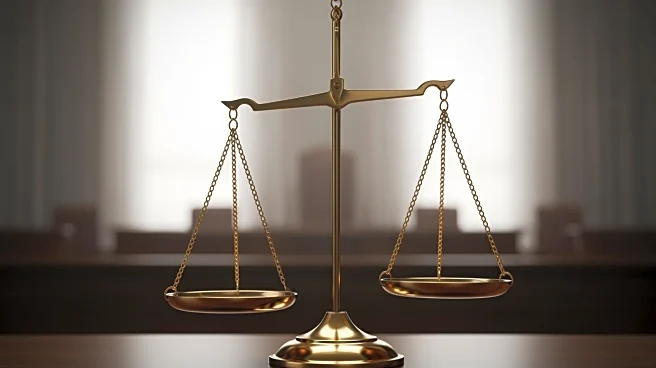What's Happening?
The Supreme Court is currently deliberating on the legality of President Trump's billion-dollar tariffs, which have been challenged by various stakeholders including a New York-based wine importer, an
Illinois educational-toy maker, and a group of states. During the hearing, US Solicitor General D. John Sauer argued in favor of the tariffs, citing economic and national security threats due to trade deficits. The liberal justices, Sonia Sotomayor, Elena Kagan, and Ketanji Brown Jackson, appeared inclined to strike down the tariffs, while some conservative justices expressed reservations. Chief Justice John Roberts and Justice Amy Coney Barrett raised questions about the administration's authority under the International Emergency Economic Powers Act (IEEPA), which has never been used for tariffs before.
Why It's Important?
The outcome of this Supreme Court case could have significant implications for U.S. trade policy and economic relations. If the tariffs are upheld, it could reinforce the executive branch's power in foreign trade matters, potentially leading to more unilateral trade actions. Conversely, striking down the tariffs could limit presidential authority and shift more power to Congress in regulating trade. The decision will impact businesses and consumers, as the tariffs have already affected global markets and increased costs domestically. The case also highlights the ongoing debate over the balance of power between the executive and legislative branches in economic policy.
What's Next?
The Supreme Court justices are expected to vote on the case soon, with opinions likely to be drafted in the coming weeks. The decision will be closely watched by businesses, policymakers, and international trade partners. If the tariffs are invalidated, there may be complex reimbursement processes for the billions collected, posing logistical challenges. The ruling could also influence future administrations' approach to using IEEPA for economic measures, setting a precedent for how national emergencies are defined in trade contexts.
Beyond the Headlines
This case raises broader questions about the definition of national emergencies and the scope of presidential powers. The use of IEEPA for tariffs could set a precedent for addressing other global challenges, such as climate change, through economic measures. The debate also touches on the ethical considerations of using trade policy as a tool for national security, and the potential consequences for international relations and global economic stability.








